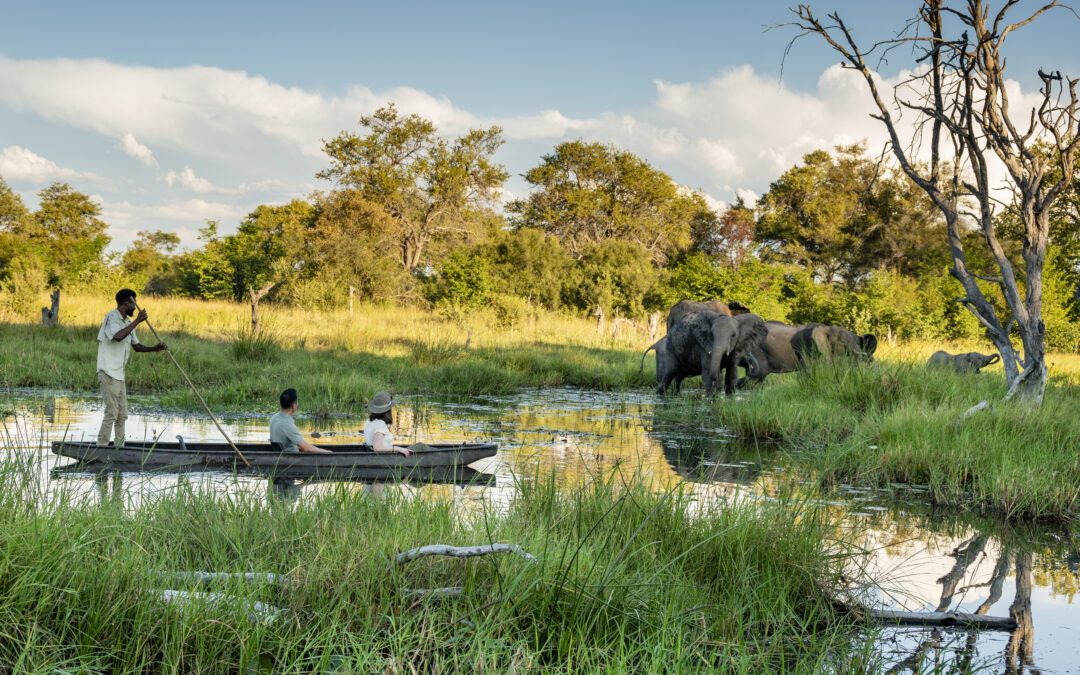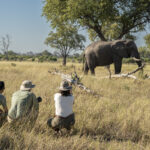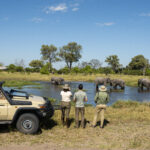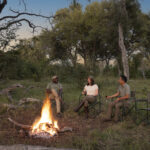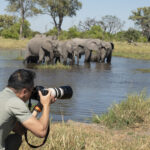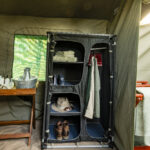“I’m so worried! I’ve seen the videos online. Is a Botswana safari safe and what happens if things go wrong?” We know you are concerned about Botswana safari safety and that you want to have a magical trip with no worries. So, what do you need to know?
We have discussed “Is an African Safari Safe?” on our blog before, but we thought we would touch on the topic again and bring up a few more things. There are many ways we keep you safe on safari, and there are many ways to keep yourself safe. So, let’s talk about it!
And YES your kids are safe and welcome, too!
Safari Animal Safety
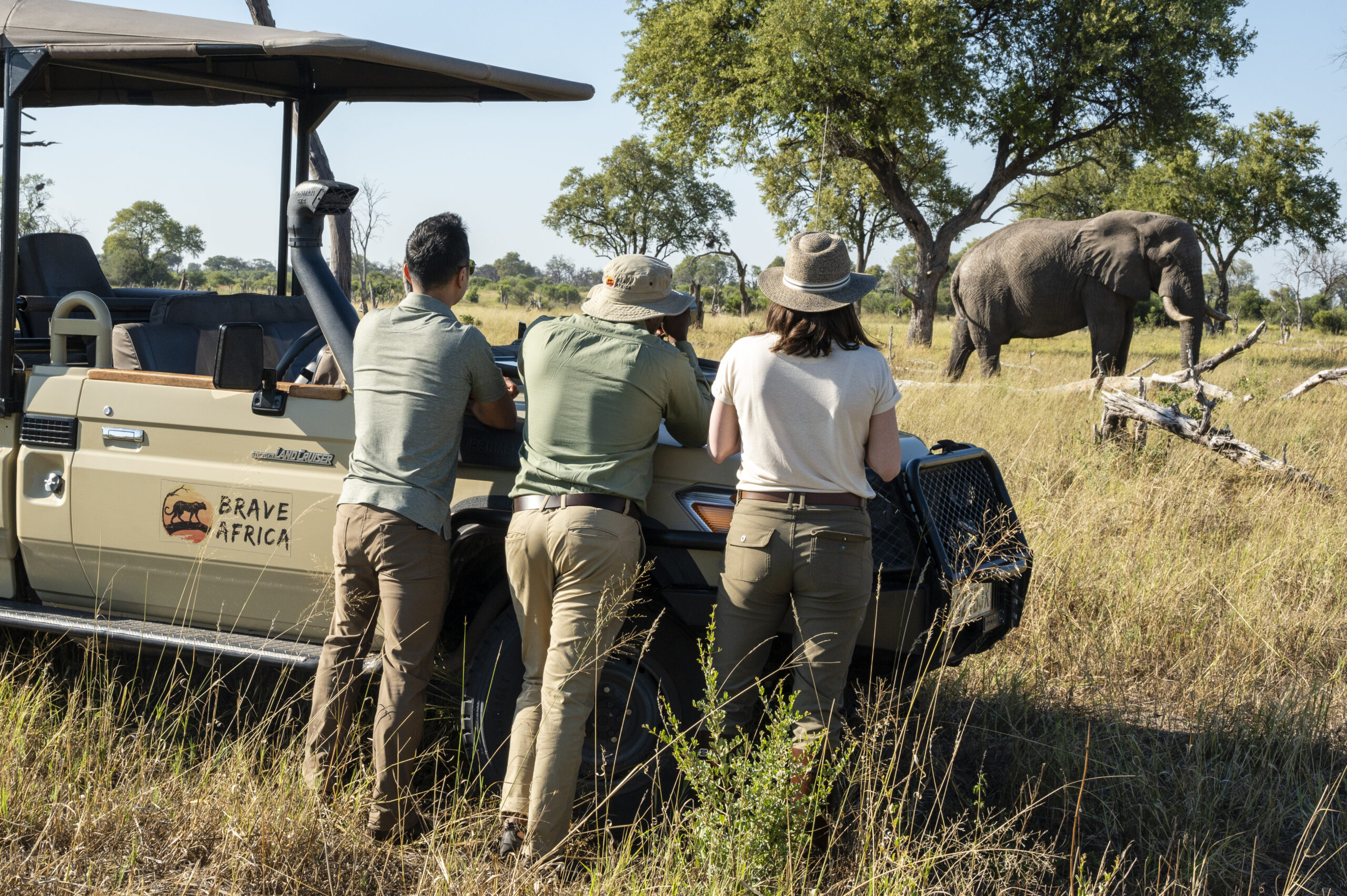 Are you going to be eaten by a lion? Is an elephant going to run over your vehicle? Is a leopard going to run through camp and enter your tent? You are in the wild, so everything is possible. Right?
Are you going to be eaten by a lion? Is an elephant going to run over your vehicle? Is a leopard going to run through camp and enter your tent? You are in the wild, so everything is possible. Right?
“I have seen safari videos online. It is dangerous! How can you protect safari guests from animals attacking? Are animal attacks common on safari?”
The short answer is, “Animals are not dangerous on safari if you follow the rules and act smartly.” Those videos exist because they get millions of views and, thus, a lot of money. They are viral videos because dangerous situations on safari are so rare, and as such, they are newsworthy.
If you have a reputable guide and stay at a reputable lodge, you should not worry about animals when it comes to Botswana safari safety. Here’s why.
Safari Guides and Safety
No guide would ever put a guest in danger! In fact, guides undergo years and years of training to ensure guest safety at every moment. And yes, this means guest safety even when interacting with animals.
- Animal Behavior: Reputable and experienced safari guides have spent years studying animal behavior to know how and when to interact with the many animals you will encounter on safari. Your guide will be able to tell you when an animal is stressed, when they need space, when it is safe to approach, how close to approach, and everything in between.
- Situational Awareness: Nature can always be unpredictable; that is why safari guides are also trained to never put themselves or their guests in a situation where there is no easy escape. It is one of the first rules of Botswana safari safety. This means that your guide will not drive your vehicle into an area where they could not easily get you to safety if the situation calls for it. Your safety is always their first priority.
- Safety Over Photography: We know that guests go on safari to get incredible photos and videos that will last a lifetime. But your guide will never prioritize your pictures over your health and safety or the health and safety of the animal. So, sometimes you might have to sacrifice the “perfect picture” for a safe experience.
Check out our Frequently Asked Questions (FAQs) for more insight!
Safari Camp Safety
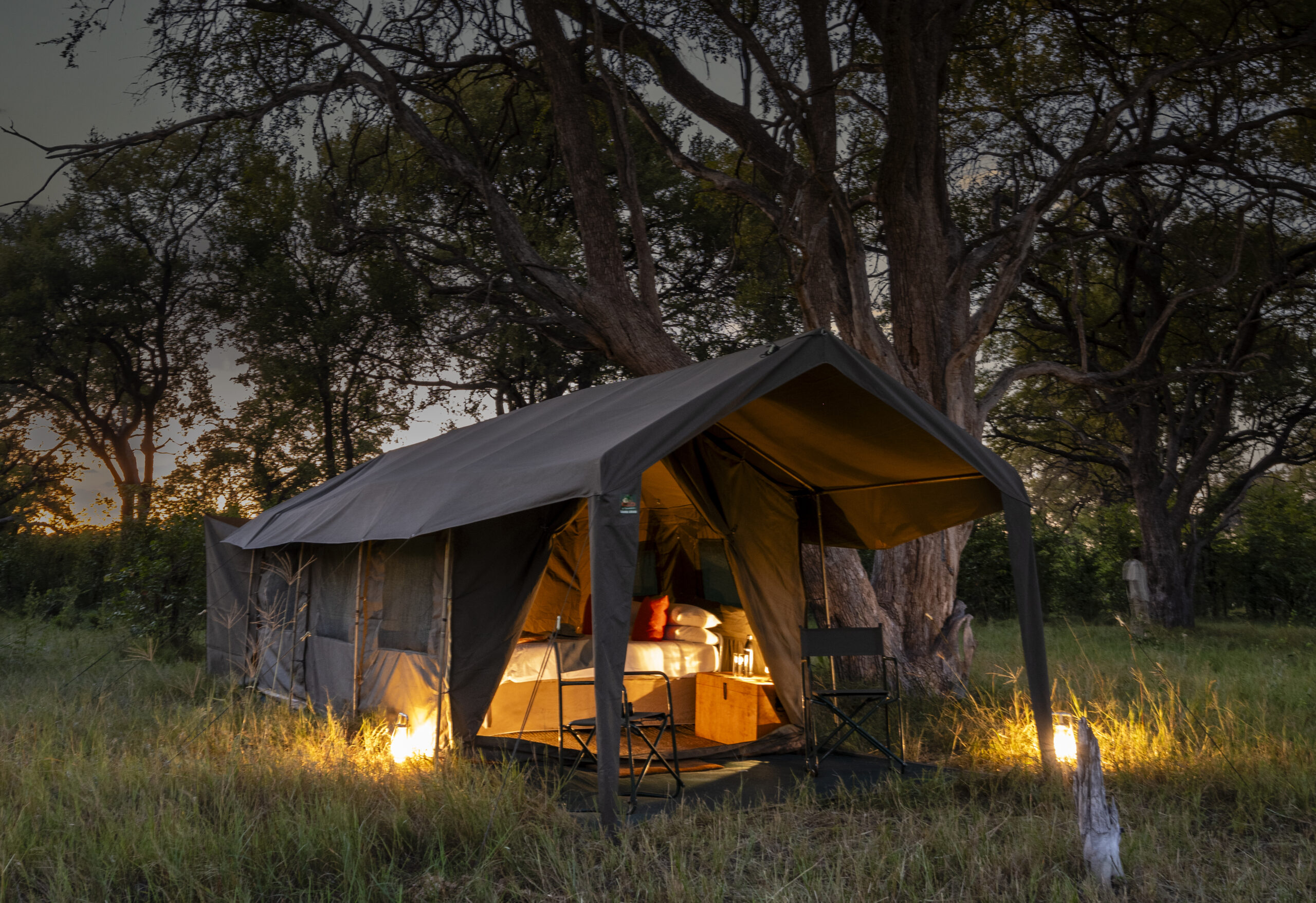 What about at camp? “I have seen your canvas tents. How is that safe? Animals could break into your tent or come through camp at any time!”
What about at camp? “I have seen your canvas tents. How is that safe? Animals could break into your tent or come through camp at any time!”
We love it when animals visit camp, and so do our guests. That is part of what makes a mobile safari camp so attractive: the chance to sleep and interact with animals where they live. And who doesn’t want to wake up to elephants drinking at the nearby river?
The key to remaining safe at your safari camp is listening to your guide, following the camp rules, and using common sense. Another key to Botswana safari safety is always remembering that we are visiting the animals’ home, so you must respect it!
Camp Rules
To ensure your safety at camp, there are a few critical rules you will need to follow.
- Never walk anywhere at night without a guide! When the sun sets at camp, you cannot walk anywhere you want. Night is the most dangerous time, and so you will be walked around camp and to and from your tent by someone on staff. This is for your safety and the safety of our staff.
- Never leave your tent at night! Once you enter your tent at night, stay inside. There is never an excuse to leave your tent at night. Yes, you will hear a lot of noises outside, but the animals will never bother your tent. You are safe inside. Do not go outside to look. Listen, enjoy the experience, and then ask your guide in the morning what happened. All sorts of animals come by camp at night, and they have night vision while you do not.
- Do not approach any animals without permission. If animals come into the camp, do not approach them unless you are with your safari guide and they give permission and show you how to approach safely and appropriately. In most cases, we do not want to interact with the wildlife directly for everyone’s safety and comfort.
Plan your safari experience with Brave Africa today!
Safari Vehicle Safety
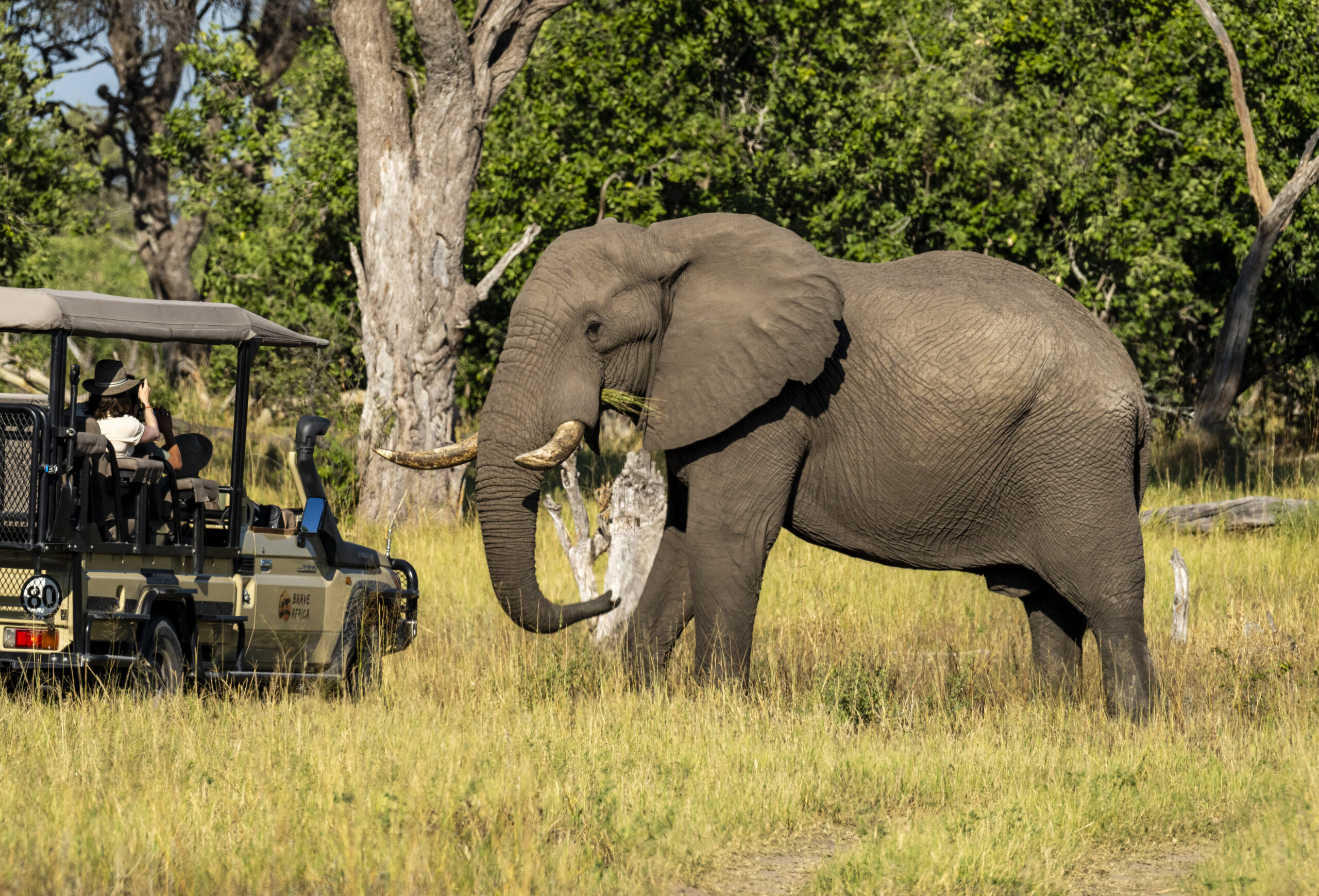
One concern we often encounter when it comes to Botswana safari safety are our open safari vehicles. Unlike in Kenya and Tanzania, most Botswana safari vehicles are open to the environment with no doors or windows, and it can seem unsafe if you have never been on a safari before.
“Can animals jump into the car and eat us on safari? What happens if an animal charges us? What about the vehicle getting stuck in the African bush?”
The first thing to know about your safari vehicle safety is that the vehicle has been specifically designed for an amazing safari experience. Our vehicles are entirely customized to ensure your safety and comfort on safari. We talk all about them in this blog. For now, let’s focus on safety.
Safari Car Safe Practices
There are many ways we practice Botswana safari safety during game drives in our open-air vehicles. Here is what you need to know.
- Listen to your guide. The first key to safari vehicle safety is to listen to your guide. They will tell you how to be safe near the animals inside the vehicle. This means:
- Never leave the car unless your guide gives the okay.
- Talk in low voices when near animals that may not react well to more animated chatter.
- Stay seated during animal sightings unless your guide gives you permission to move around.
- Keep your hands, arms, legs, feet, and heads inside the safari vehicle, especially around animals.
- Never reach out to touch the animals.
- Prepare for off-road driving. Safari guides are exceptional drivers. They have to be. Their roads are dirt tracks, marshlands, waterways, tall brush, narrow paths, and so much more. The good news is this means that you can go where the animals are and see things you could never see outside the bush. But don’t expect an always smooth ride because we cannot promise that.
- Trust in the community. When you go on safari with a reputable company and guide, you are never alone on safari. The entire community will come together to help if there is ever a need. For example, on a recent safari, another camp’s vehicle got stuck in deep water. Within an hour, 10-12 different safari vehicles and guides stopped to help rescue the vehicle and guests. Vehicle breakdowns, flat tires, and other mishaps can happen, but there is always help available. That’s why your guide has a radio connected to the entire community and camp—just in case.
Safari Safety: Injuries, Sickness, and More…
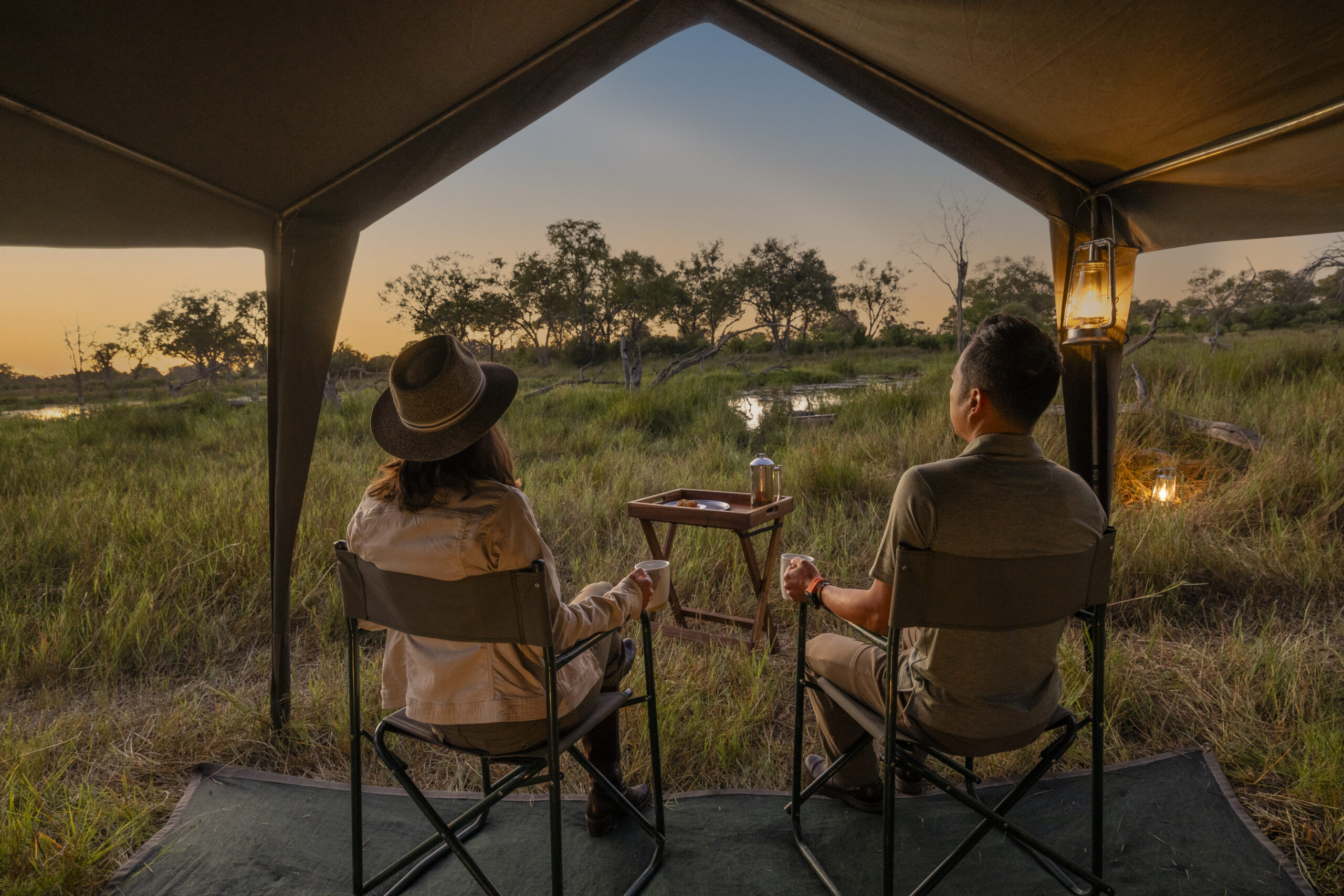 Lastly, you might be worried about being in the bush if something happens: you get sick, someone in your group gets injured, you have an allergic reaction, etc. If you need a doctor or a hospital, being away from civilization can seem terrifying. That’s why a key element of Botswana safari safety is our plan for first aid.
Lastly, you might be worried about being in the bush if something happens: you get sick, someone in your group gets injured, you have an allergic reaction, etc. If you need a doctor or a hospital, being away from civilization can seem terrifying. That’s why a key element of Botswana safari safety is our plan for first aid.
We do not leave your health or safety up to chance. We have various plans and contingencies in place to take care of you in case the worst should happen.
- Okavango Air Rescue: If a worst-case scenario should occur and you need emergency help, we would go with Okavango Air Rescue to get you to the hospital as quickly as possible. They have a medically equipped helicopter and emergency doctor who we can call to evacuate you from the bush immediately.
- First Aid Treatment: If you have a smaller injury that doesn’t require a doctor, we have multiple first aid kits around camp and in our vehicles that are available. These kits contain everything you would need for basic first aid.
- Non-Emergency Aid: If you become sick or injured in such a way that you are unable to finish your safari, but it is not an emergency needing immediate attention, we will work with the local bush flight companies to get you back to Maun or Kasane and a local doctor. Depending on your situation, we also might be able to drive you back into town.
We Take Your Botswana Safari Safety Seriously!
The key thing to note when it comes to your safety on safari is that your safety is our number one goal. It is even more important than getting the perfect picture or seeing all the wildlife. We know you will not have a good time if you feel unsafe or you get hurt.
If you have any questions or concerns about Botswana safari safety, please do not hesitate to reach out to us at info@braveafrica.com. We promise an African safari is worth it. You will not regret a moment!

